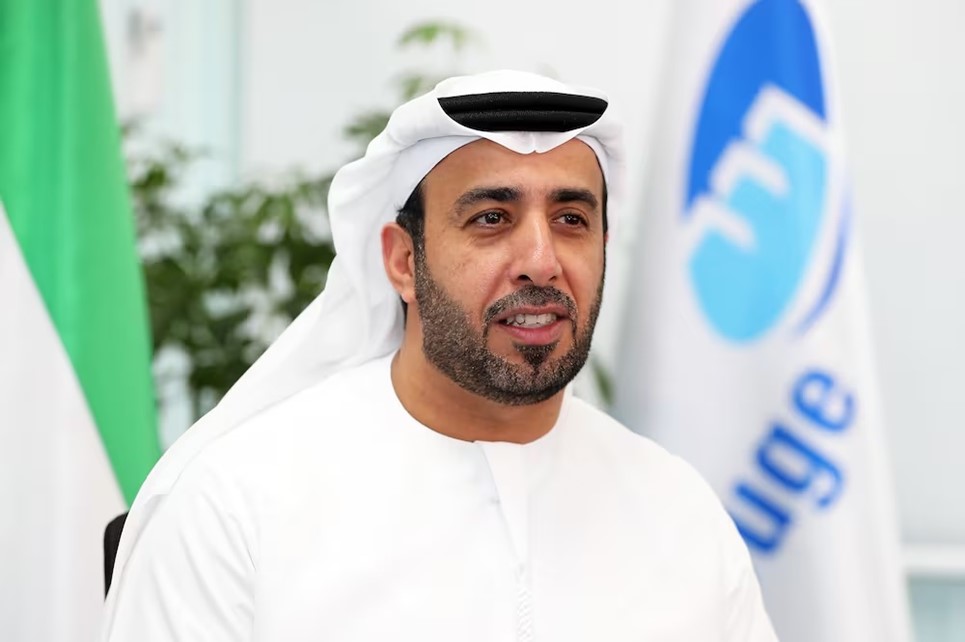Published in: The National
10 March 2024
By John Benny

Hazeem Al Suwaidi, chief executive of Borouge, said China remains an important market for the company. Pawan Singh / The National
Abu
Dhabi chemicals maker Borouge's $6.2 billion Borouge 4 project in Ruwais remains “on track” to be completed by the end of 2025, its chief executive said.
The plant will increase Borouge’s polyolefin production by about 30 per cent to 6.4 million tonnes. It will also make the company's production operation at Al Ruwais Industrial City the world's largest single-site polyolefin complex.
“We're looking forward to complete this project by the end of 2025. The current progress of completion of the project is more than 50 per cent,” Hazeem Al Suwaidi told The National.
“[It] will have a significant and a big impact on our financial performance in Borouge. We're looking forward to slowly and gradually revamping the production in 2026,” he said.
Plastics are a major growth area for petrochemicals, and polyolefins account for almost two-thirds of global demand.
Highly versatile, polyolefins have a broad spectrum of end-use applications from hard plastics such as sheets and pipes to softer products like films, bags, and bubble wrap.
However, demand for most petrochemicals was lower than expected last year as geopolitical tensions and high-interest rates weighed on consumption.
While Borouge's fourth-quarter net profit rose about 17 per cent annually, driven by lower costs and expenses, the company reported a 6 per cent drop in quarterly revenue on “weaker global demand”.
Asia, home to several large emerging economies, is the centre of consumption and production, with China the driving force in both polythene and polypropylene manufacturing.
Borouge has three offices in the country located in Beijing, Shanghai and Guangzhou.
“China has been always an important and an excellent market for us. However, there has been also different challenges with the market overall, not only China,” Mr Al Suwaidi said.
Borouge has been focused on producing specialised products tailored for the Chinese market, and these products have resulted in the “highest returns for the company”, he said.
Manufacturing activity in the world’s second-largest economy has slowed over the past few quarters amid weak consumer spending and as a post-pandemic economic rebound has fizzled out.
“In 2024, [global] markets will remain difficult and challenging … we will go in cautiously … but we have all what it takes to deliver a great performance for the company,” the Borouge chief said.
Established in 1998, Borouge, a joint venture between Abu Dhabi state energy company Adnoc and Austrian chemicals producer Borealis, has a workforce of more than 3,100 and customers in more than 86 countries across Asia, the Middle East and Africa.
In May 2022, Borouge raised $2 billion through an initial public offering and was listed on the Abu Dhabi Securities Exchange. The IPO, which was about 42 times oversubscribed, was the largest listing in Abu Dhabi at the time.
After its listing, Borouge was included in the FTSE Global Equity Index Series, which is used by investors globally to guide asset-allocation decisions and support portfolio construction.
Focus on Sustainability
A crucial focus for Borouge's new complex will be sustainability, the executive said.
The ethane cracker at Borouge 4 is set to be one of the world’s most efficient, Sultan Al Shehhi, Borouge 4 project director, told The National.
An ethane cracker takes the component of natural gas and converts it into ethylene by heating the ethane to such a high temperature that it breaks the molecular bonds holding it together.
Borouge plans to have “flareless” operations at the plant to lower emissions and may install a carbon capture facility in the future, which will capture “almost all” the carbon produced from the cracker, Mr Al Shehhi said.
“Sustainability was … one of the major elements that we tried to design our plant around,” he said.
Adnoc, Borouge’s majority stakeholder, plans to double its carbon capture and storage capacity goal to 10 million tonnes per annum by the end of the decade, the equivalent of removing more than two million petrol-powered cars from the roads.
To read the original article, click
here.
